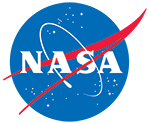
MODIS/Aqua Sea Ice Extent Daily L3 Global 1km EASE-Grid Day, Version 61
Data set id:
MYD29P1D
DOI: 10.5067/MODIS/MYD29P1D.061
This is the most recent version of these data.
Version Summary
Version Summary
This C61 product is identical in format to the C6 version and the C61 reprocessing does not contain any change to the science algorithm used to generate this product. Any improvement or change in the C61 product compared to the C6 product is from changes and enhancements to the calibration approach used to generate the input products and changes to the polarization correction used in this collection reprocessing.
Overview
This global Level-3 (L3) data set provides daily daytime sea ice extent and ice surface temperature derived from the 'MODIS/Aqua Sea Ice Extent 5-Min L2 Swath 1km' (https://doi.org/10.5067/MODIS/MYD29.061) product. Each data granule is a tile consisting of 10° x 10° of data gridded to the Lambert Azimuthal Equal Area Scalable Earth Grid (EASE-Grid).
The terms "Version 61" and "Collection 6.1" are used interchangeably in reference to this release of MODIS data.
Parameter(s):
ICE EXTENT
ICE TEMPERATURE
Platform(s):
Aqua
Sensor(s):
MODIS
Data Format(s):
HDF-EOS2
Temporal Coverage:
- 4 July 2002 to present
Temporal Resolution:
- 1 day
Spatial Resolution:
- 1 km
- 1 km
Spatial Reference System(s):
- NSIDC EASE-Grid NorthEPSG:3408
- NSIDC EASE-Grid SouthEPSG:3409
Spatial Coverage:
- N:90S:-90E:180W:-180
Blue outlined yellow areas on the map below indicate the spatial coverage for this data set.
Data Access & Tools
A free NASA Earthdata Login account is required to access these data. Learn More
Documentation
User Guide
General Resources
Product Specification Documents
Help Articles
General Questions & FAQs
For the snow cover and sea ice products, users can use MODIS Collections 6 and 6.1 together.
This article covers frequently asked questions about the NASA NSIDC DAAC's Earthdata cloud migration project and what it means to data users.
OPeNDAP, the Open-source Project for a Network Data Access Protocol, is a NASA community standard DAP that provides a simple way for researchers to access and work with data over the internet.
Data products from VIIRS are created to be similar to MODIS data products to ensure the continuity needed for the development of snow and sea ice climate records beyond the life expectancy of MODIS. The temporal resolution and spatial extent are identical in MODIS and VIIRS.
The lag time between observations and availability of MODIS products is only a few days. Lag time may be extended due to satellite maneuvers and extra quality assurance required for the geolocation data after the maneuver.
How to Articles
Many NSIDC DAAC data sets can be accessed using NSIDC DAAC's Data Access Tool. This tool provides the ability to search and filter data with spatial and temporal constraints using a map-based interface.Users have the option to:
To convert HDF5 files into binary format you will need to use the h5dump utility, which is part of the HDF5 distribution available from the HDF Group. How you install HDF5 depends on your operating system.
The NASA Earthdata Cloud is the NASA cloud-based archive of Earth observations. It is hosted by Amazon Web Services (AWS). Learn how to find and access NSIDC DAAC data directly in the cloud.
All data from the NASA National Snow and Ice Data Center Distributed Active Archive Center (NSIDC DAAC) is directly accessible through our HTTPS file system using Wget or curl. This article provides basic command line instructions for accessing data using this method.
This article highlights the NSIDC DAAC data sets available with customization options and outlines a workflow for searching, ordering, and customizing data in NASA Earthdata Search. This approach is ideal for users who want to download data to their local machine.
NASA Worldview is a map interface that allows users to interactively browse imagery, create visualizations, and download the underlying data.
NASA's Global Imagery Browse Services (GIBS) provides up to date, full resolution imagery for selected NSIDC DAAC data sets.